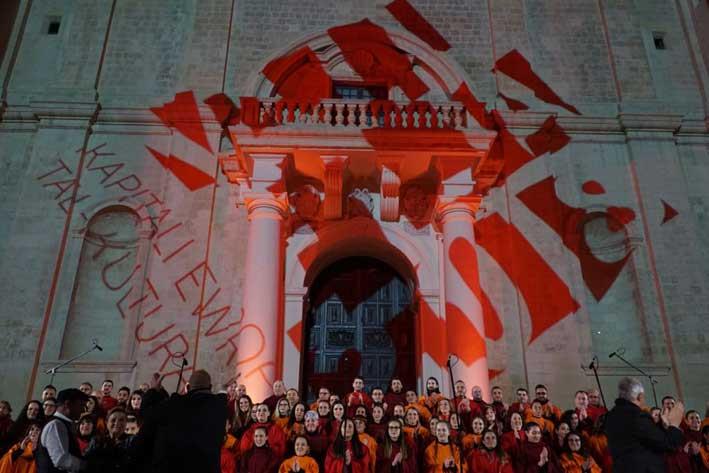What does the European city of culture mean?
It’s a 30-year-old initiative first introduced by the Greek minister of culture Melina Mercouri. Originally, it was intended to generate a process towards European cultural unity. I think this is an important aspect giving an opportunity to highlight one or two cities every year all over Europe. These cities then get a chance to show themselves to the world and to attract more tourists, more cultural attractions into the city. That is why the European city of culture initiative now is a very complex and economically very beneficial initiative. Furthermore, data suggests that those cities that are the European Capital of Culture can experience a boom in tourism, investment, prestige and recognition worldwide, but also inside the city because by including the citizens in the activities during the year, a new atmosphere of community and solidarity is enacted.

Why is it so important, what is the ethos behind it?
It has to do with the European citizenship, where tourists can come and see a city and experience the city, visit the event, and experience the European identity. Valletta is a very special place because Malta is at the cross roads of civilizations and people. Therefore, I believe it is a very special mission for Valletta to show off its diverse features and the Mediterranean region which is part of the European character of this multicultural and multinational region.
What does culture mean to you?
Culture is the foundation of the European identity. Initially, Europe was a peninsula. What makes us European is culture, which is why we need to put culture at the heart of European integration. Culture can be the engine behind European growth. With creative industries in Europe booming, it can be a really strong contribution to Europe. If we perceive culture more broadly than just a leisure time activity or as a sum of literature and fine arts, we can use and harmonise all the energies provided by culture to produce real growth.

What are the European Union’s future prospective plans to indoctrinate culture?
At the moment, culture and education are at the top of the European political agenda. One of the main documents adopted recently by EU member states was about the role of culture and education and developing the European citizenship, European identity. I think that is the most important aspect to strengthen European community and identity and contribute to the debates on the future or Europe or to generate a move towards European citizenship.
Why is it so important that Valletta is the European capital of culture and for Malta, as a small state, being on the international stage?
This is a good opportunity for Malta and Valletta to introduce itself to a European audience. Obviously, Malta just had the European presidency one year ago, again a good opportunity. That was six months, and this is one year of events for Valletta. A very good opportunity to polish the image of the city to promote the values Malta thinks are important such as solidarity and the multicultural aspect of the city. And of course, you can rebrand the image of the city because there’s a lot investment and renovation. I have just been told that areas I had visited last year are now being renovated so they will become new attractive hotspots for young people and tourists.

What are your thoughts about Valletta and Maltese culture?
It’s my third or fourth time in Valletta and I really enjoy the atmosphere of the city. This is a unique island and location; the Maltese are a unique people. The history of Malta is very interesting and gives many lessons about the characteristics of European culture and community. I really enjoy being here and I look forward to visiting all these events.